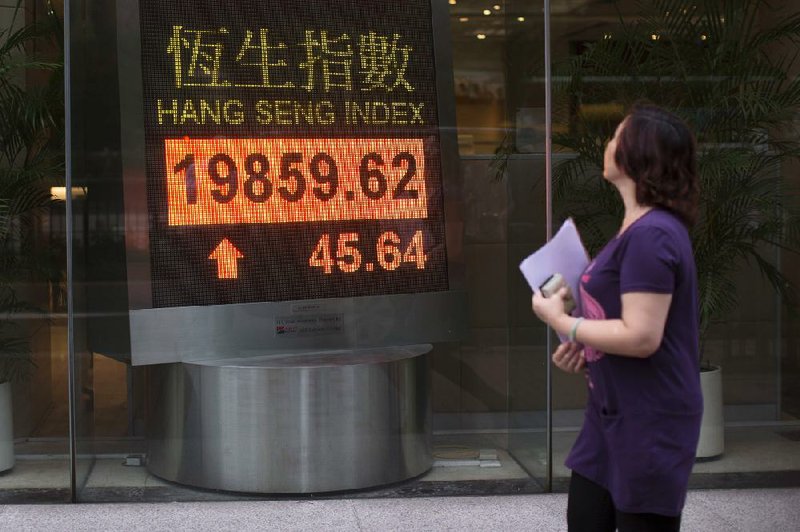BEIJING - China’s central bank said Tuesday that it will keep money-market rates at a “reasonable” level and seasonal forces that have driven them up will fade.
The People’s Bank of China has provided cash to some financial institutions to stabilize money market rates and will use short-term loans to ensure steady markets, according to a statement posted on its website Tuesday. It also called on commercial banks to improve their cash management.
The statement is the first public confirmation of central bank action to ease a cash squeeze that sent China’s overnight bank repurchase rate to a record last week and came hours after Ling Tao, deputy head of the People’s Bank of China’s Shanghai branch, said liquidity risks were controllable. Premier Li Keqiang is seeking to wring speculative lending out of the nation’s banking system after credit expansion outpaced economic growth.
The People’s Bank of China is giving the market “a pill to soothe the nerves,” said Xu Gao, Everbright Securities Co.’s Beijing-based chief economist. “The message is clear: The central bank doesn’t want to see a tsunami in China’s financial markets and market rates will drop further.”
Policy makers’ reluctance to add liquidity contributed to tipping the CSI 300 Index of Chinese equities into a bear market Monday. On Tuesday, the nation’s stocks posted the biggest swings in 22 months. The Shanghai Composite Index fell 0.2 percent at the close after declining as much as 5.8 percent.
“With the elimination of seasonal and emotional factors, interest rate fluctuations and the tight liquidity situation will gradually ease,” said the central bank, which attributed the increase in borrowing costs to a rapid increase in lending, cash demand during a holiday earlier this month and changes in foreign exchange markets.
“We’ll closely monitor the change of liquidity within the banking system going forward, flexibly adjust liquidity management based on international payments and the liquidity demand-and-supply situation,” Ling said at a briefing in Shanghai on Tuesday. The People’s Bank of China will “strengthen communications with market institutions, stabilize expectations and guide the market interest rates within reasonable ranges.”
Ling’s remarks precede the city’s annual Lujiazui Forum financial conference starting Thursday.
“The central bank can be a little bit more transparent with the market,” said Ken Peng, a BNP Paribas SA economist in Beijing. “The Shanghai official’s comment, had it come a few days earlier, may have helped to calm the market a bit.”
China’s central bank lacks the degree of autonomy enjoyed by its counterparts in the U.S., Europe and Japan, with the State Council, or Cabinet, playing a leading role in setting policy. The nation in March completed a once-in-a decade leadership transition,with Li becoming premier.
“An increased level of transparency from the central bank side is helpful,” said Sun Junwei, a Beijing-based economist at HSBC Holdings Plc. “At the same time, the decision-making process at the People’s Bank of China is very different from other central banks like the Fed, so what the People’s Bank of China can do in communicating with the market may be limited.”
China’s cash squeeze is increasing the chance that Li will be the first premier to miss an annual growth target since the Asian financial crisis in 1998.
Goldman Sachs and China International Capital on Monday joined banks from Barclays Plc to HSBC Holdings in lowering China’s economic growth projections this year to 7.4 percent, below the government’s 7.5 percent goal.
“The current leadership is trying to build its reputation in a different way than the previous administration, which felt that its target was holy and had to be met regardless of the circumstances,” said Louis Kuijs, chief China economist at Royal Bank of Scotland Group Plc in Hong Kong.
Business, Pages 25 on 06/26/2013

